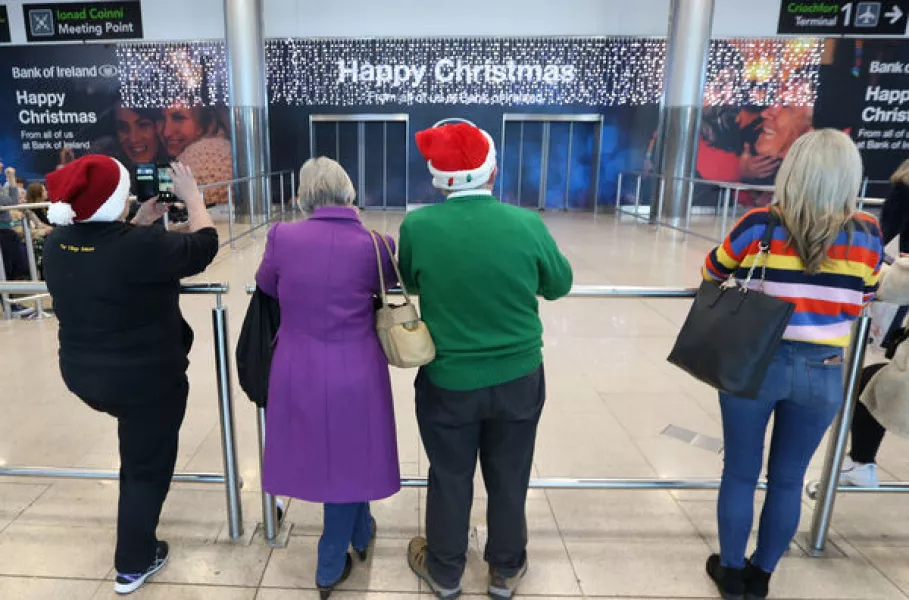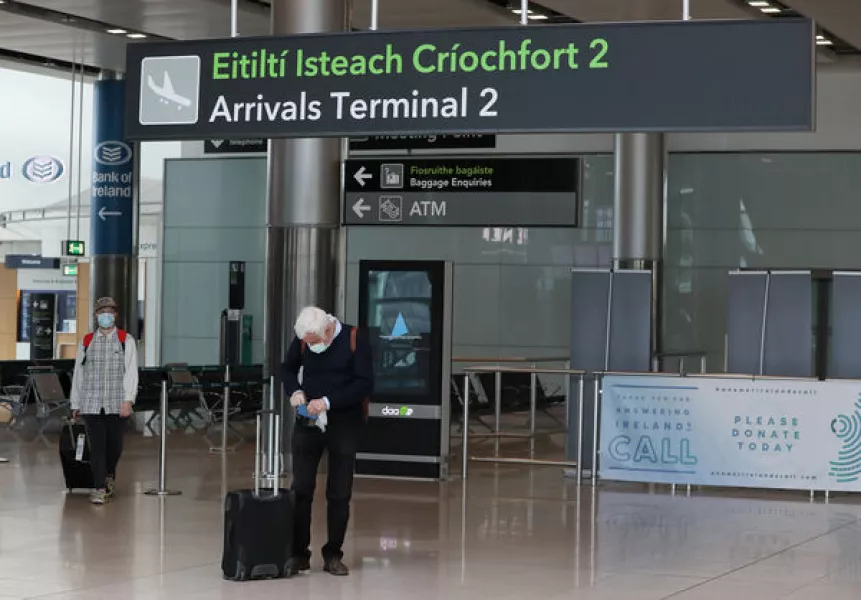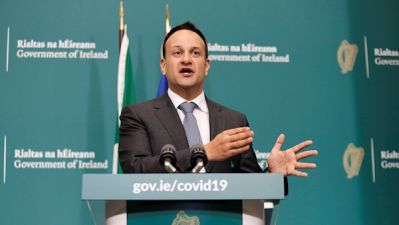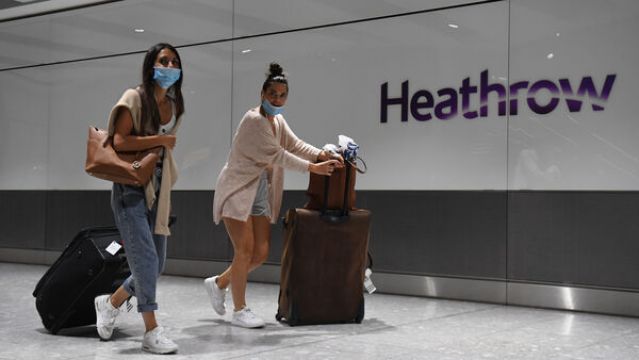Irish people living abroad have reacted to Tánaiste Leo Varadkar's comments in the Dáil, where he advised people not to book flights home for Christmas yet, with some describing the advice as "harsh".
Jean Kelly, originally from Cork but living in London for many years, said the Tánaiste could have been "more compassionate" in his approach.
"We had already made the decision not to come home for Christmas around August, as we knew there would be a second wave. I think we all did have a little bit of excitement reading about the traffic light system, but we knew travelling home would be more of a possibility in the new year.
"People have made really big sacrifices, most people abroad are going to go a year without seeing family in Ireland."

She said many people living in the UK travel back and forth frequently and never imagined they would be separated from their loved ones for so long.
She said: "I just felt people had already decided not to come home to keep everyone safe, and then we were slapped in the face, told 'well don't come back because you're not welcome anyway'. We are all trying to do the right thing."
She added that her three-year-old daughter will not be able to see her grandparents this Christmas.
Mary Switzer, from Dublin but living in London for 29 years, felt that Mr Varadkar's delivery was "harsh."
"Us abroad in the UK and elsewhere have kept away from Ireland since March, missing many family celebrations, including the birth of my great-nephew.
"Christmas is a time for us go home, always packed with a feeling of love and togetherness, as Irish across generations make this journey.
"Maybe this year we will not be able to, in order to keep ourselves and our loved ones safe.
"I think in the weeks to come we will have to tell our elderly parents, family and friends this news, and that is very sad."
Transnational research
Mary Immaculate College (MIC), in conjunction with Nottingham Trent University, is conducting research to assess the impact of the pandemic on people who lead transnational lives between Ireland and Britain.
Dr Marc Scully, lecturer in the Department of Psychology at MIC, said they have had a large response to the survey.
"From reading through people's responses to the survey so far, I would say that the Tánaiste’s statement today won’t have come as any great shock, although will still provoke sadness."
He added that a lot of the respondents have already resigned themselves to not returning, saying it would be too risky to do so, particularly those with elderly relatives.
"I do think it’s vital that if the Irish government does formally ask Irish emigrants not to travel home at Christmas, this needs to be framed in terms of a collective, shared identity and mission.
"We know from the social psychology of leadership that creating and maintaining this sense of shared identity is vital if you’re asking people to make sacrifices for the common good.
"The government needs to address the Irish abroad as fellow citizens, rather than tourists, or unwanted bringers of disease from abroad."

He said a lot of people found the messaging around foreign travel during the summer alienating.

"The overwhelming focus was on tourism. I think a lot of Irish people abroad felt very overlooked, and distressed by the assumption that if they did travel home, it would be seen as for frivolous reasons, rather than because they were desperate to see family."
"The same would apply to migrants from other countries in Ireland, of course.
"In the longer term, I think we may also need to rethink who we consider as a ‘vulnerable’ migrant – people who might previously have been relying on regular trips home for social and emotional support might now be slipping between the cracks, both in terms of physical and mental health."
The survey is open to anyone whose family lives are spread between Ireland and Britain, such as Irish migrants in Britain and their families back home, but also British migrants in Ireland and their families.







